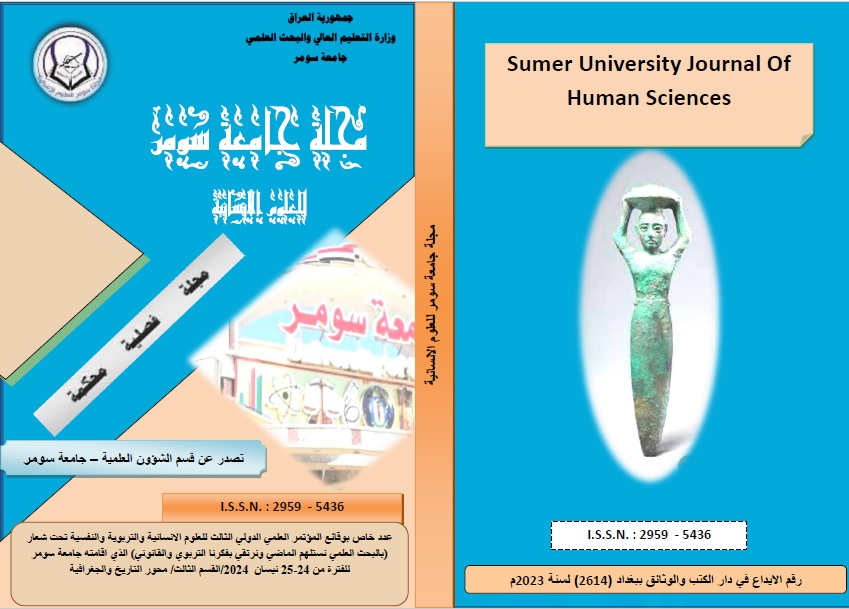The reality of solid waste in Iraq and reducing its environmental impacts
Abstract
The Iraqi environment suffers from the waste problem, like other countries, from the problem of waste accumulation, which is considered one of the most common sources of environmental pollution. There are also other common factors in exacerbating this problem, most notably urbanization and the rise in population rates within large cities, as well as the increase in the monthly income of the Iraqi family, which is affected by it. This is a direct phenomenon, and the careless behavior of city residents, as waste is disposed of by disposing of it in public squares and open spaces, and sidewalks have been turned into garbage dumps, as well as throwing waste into rivers, which has led to the creation of an unhealthy atmosphere that collects rodents and insects on the garbage. Which affects the health reality of the population in general, and what exacerbates this problem is the lack of human resources for the hygiene sector and the failure to apply scientific methods in municipal departments to deal with this waste in the correct way to treat it to preserve the environment and the health safety of the population. Some of the methods used in treatment were discussed, and recommendations and conclusions for this topic were developed in this research.


